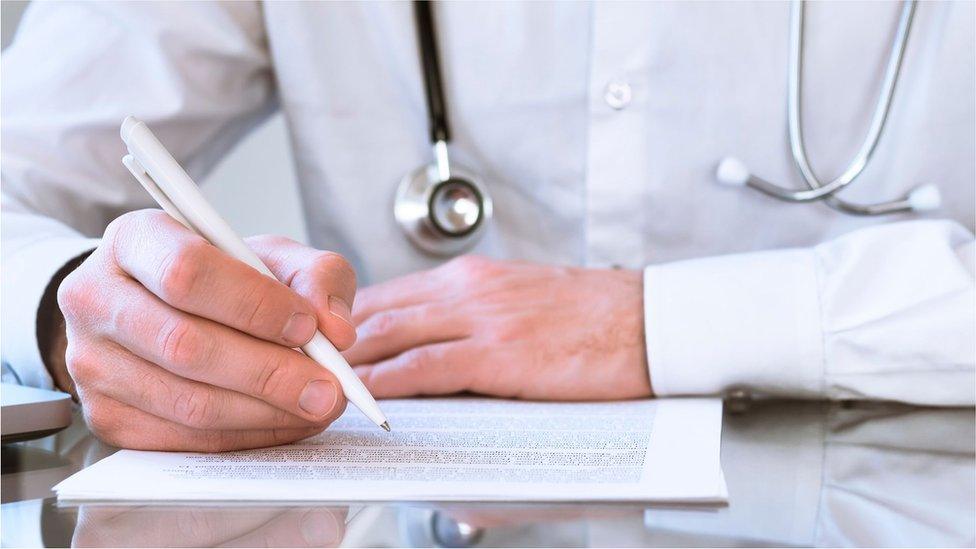Coronavirus: GPs apologise for 'vulnerable' letters delay
- Published

Doctors have apologised to "extremely vulnerable" patients who have not received GPs' letters advising them to "shield" during the coronavirus crisis.
Two weeks ago, GPs were instructed to "immediately prioritise" contacting patients with health conditions that place them at high risk of Covid-19.
But some patients have not yet received those letters.
The Royal College of GPs apologised for the delay, saying the letters would be sent "as soon as possible".
The Health and Social Care Board said GPs had been asked to use their own clinical judgement to identify "extremely vulnerable" patients.
A spokesperson said it was a "complicated process".
Dr Alan Stout, from the British Medical Association NI, said it was "a big ask of GPs during a very difficult and busy time".
But he said there was an urgency to the project, which is UK-wide, and said "these letters are very important and go to our most vulnerable and at risk group of patients".
"The only way to obtain an accurate list and contact details of these patients was through the GP computer system [and] GPs would be able to readily identify and know any patient that might have been missed," he added.
Dr Laurence Dorman, RCGP chairman, said "shielding was a big deal" and said any delays were due to the fact "doctors want to do this right".
He said staffing levels in some GP surgeries had been "hit hard by Covid-19", which had affected their ability to fulfil requirements.
'Stay home for 12 weeks'
One man in his 60s from Bangor, County Down, with severe COPD, told BBC News NI he was surprised not to have received a letter.
"My GP said they had received a template letter to send out to patients 'most at risk' but that I would not get one as I was only 'more at risk'," he said.
"But he advised me to self-isolate anyway and not to see members outside my own household. It seems like a back-covering exercise."
The Department of Health (DoH) has already given general advice to 40,000 people to stay at home for 12 weeks because of their vulnerability to Covid-19.
But this was to have been followed up by letters from GPs.

People most at risk from coronavirus are sometimes called "shielded" or "extremely vulnerable" people, external.
This includes people who:
Have had an organ transplant
Are having certain types of cancer treatment
Have blood or bone marrow cancer, such as leukaemia
Have a severe lung condition, such as cystic fibrosis or severe asthma
Have a condition or are taking medicine that makes them much more likely to get infections
Are pregnant and have a serious heart condition
(Source NHS)

Dr Dorman said the GP letters were part of a "different batch" requiring "stricter levels of isolation".
He said the process was "not straight-forward", as GP records did not always reflect whether a patient's treatment was active.
He added that there was also a lack of clarity around whether those with asthma and Chronic Obstructive Pulmonary Disease (COPD) should shield.
The RCGP was speaking with clinical experts for guidance on the definition of severe asthma, which is referred to in government shielding guidance, added Dr Dorman.